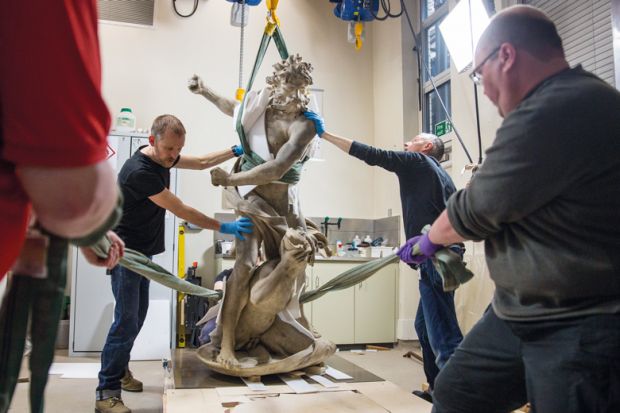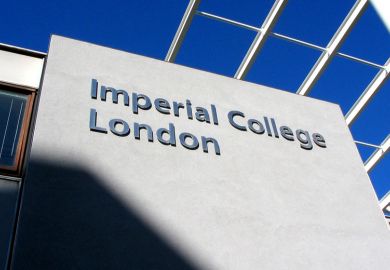Fears have been raised for the future of “pockets of research excellence” at non-Russell Group universities as job cuts look set to hit the University of Hertfordshire’s highly rated history department.
A quarter of the dozen academics in Hertfordshire’s history group could be axed as the institution moves to tackle falling student demand and save £250,000.
The university’s proposals include reducing the number of professors in the group from four to two.
In the 2014 research excellence framework (REF), research in Hertfordshire’s history department was ranked first for impact and fifth for overall research quality across the whole of the UK.
Tim Hitchcock, professor of digital history at the University of Sussex, worked in the department from 1997 to 2014.
He described the history group as “uniquely successful in the post-92 sector”, but said he feels the university is now “turning its back” on its research culture and focusing solely on attracting more undergraduates.
The REF provided “powerful opportunities” for small departments to win quality-related (QR) research funding and build something “really special”, he said.
But over the past decade, there has been an “attempt to put the new universities back in their box”, and research excellence is becoming even more concentrated in Russell Group universities, he suggested.
It is getting to “the point where obviously Russell Group institutions should have more funding than the old [polytechnics] because there are no pockets of excellence [to be found beyond the elite]. It’s just part of a longer-term journey for British higher education, which to my mind is in absolutely the wrong direction”, Professor Hitchcock argued.
An academic in the Hertfordshire history group, who wished to remain anonymous, said “morale is on the floor”.
The university’s review does not take account of the money the unit generates through the QR allocation to history or the grant income generated by the department’s academics, the scholar added.
While recognising that the lifting of the student numbers cap has made recruitment “difficult”, the university’s approach for many years had been to use the QR income and the reputational gain provided by the history group to “prove the value of having a centre of excellence”, the academic said. “The fear is that institutions outside those elite will simply decide that having centres of research excellence is something they no longer feel is worthwhile.”
The academic also raised concern that the new REF rules mean that the outputs and impacts of those in the university who are made redundant can still be entered into the exercise, due in 2021.
A spokeswoman for the university said that the School of Humanities had 92 staff and that only three were at “potential risk of redundancy”.
Hertfordshire is “committed to retaining employees wherever possible” and is in discussion with “trade union colleagues to ensure the process is fair and transparent”, she added.




